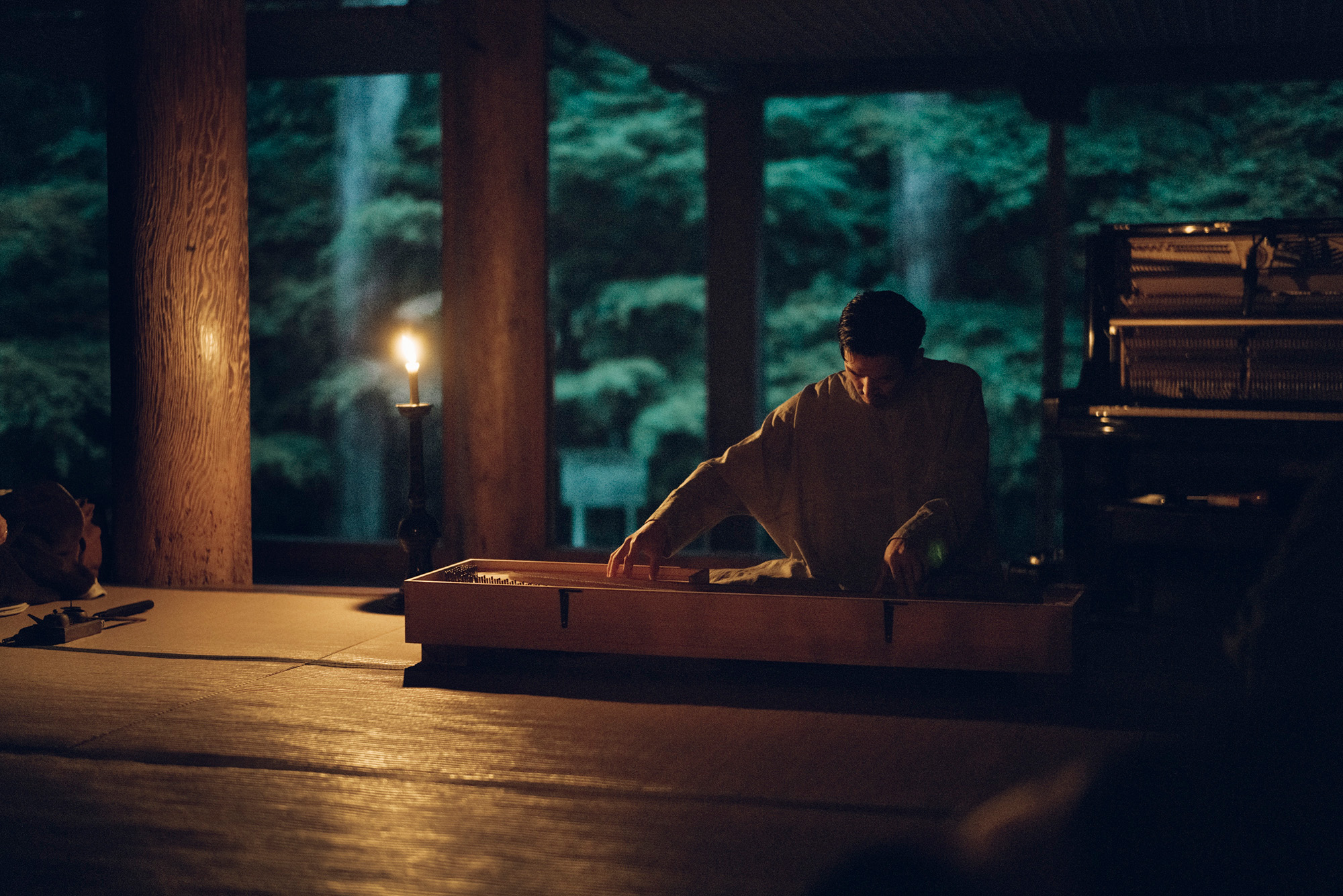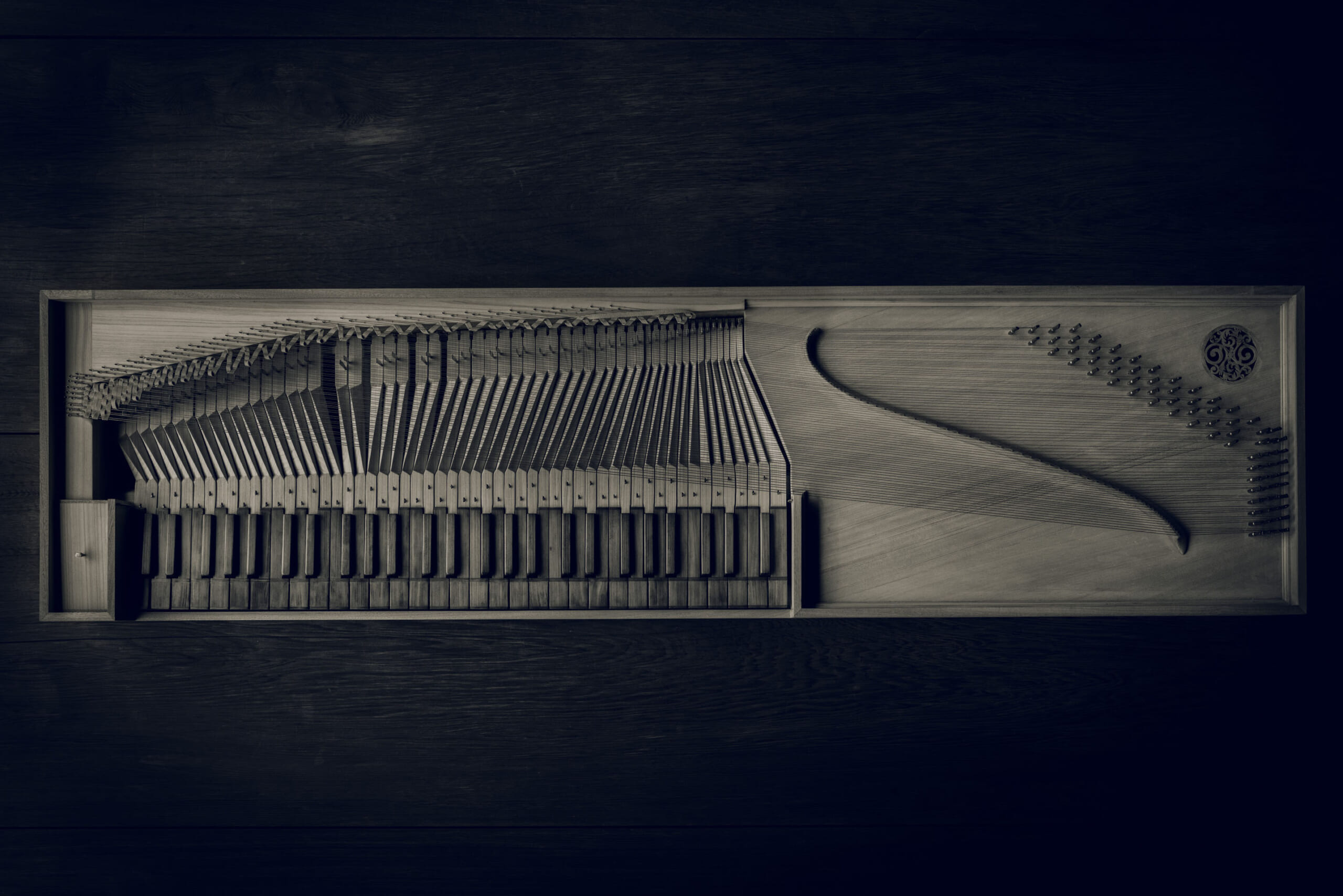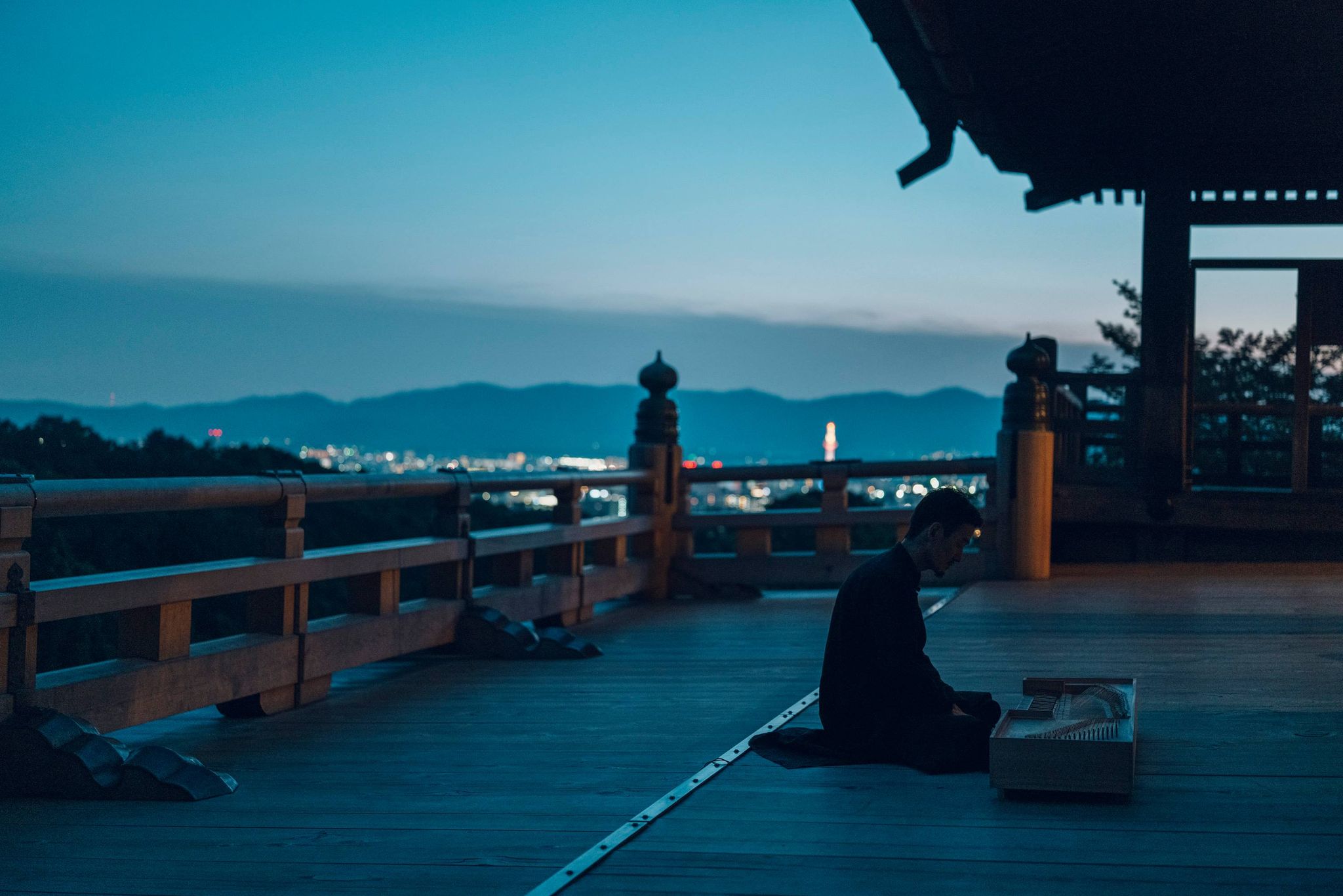Friday, April 4 | 7:30 PM – 10:00 PM
Exclusive Concert & Bespoke Dinner (by reservation only)
Saturday, April 5 | 5:30 PM
Public Concert followed by a conversation with Shinichiro Ogata
 Credit : ©SUDO KAZUYA
Credit : ©SUDO KAZUYA
On April 4 and 5, OGATA Paris welcomes Japanese clavichordist Akira Uchida for two exceptional events.
The clavichord is a struck-string instrument that originated in Europe in the 14th century, known for its soft and delicate tone. Inspired by Buddhist philosophy and infused with a distinctly Japanese spirituality, Akira Uchida offers a mystical reinterpretation of this ancestral instrument.
PROGRAM
Friday, April 4 | 7:30 PM – 10:00 PM
An exceptional evening combining a bespoke dinner and a private concert.
For one night only, Akira Uchida’s clavichord will resonate in the underground space of OGATA, beneath the stone vaults of Shubō, our sanctuary dedicated to Japanese spirits.
To enhance this contemplative experience, delicate Japanese dishes will be served, accompanied by sake, wine, and tea.
Reservation required:
https://ogataparis.bonkdo.com/en/workshops/un-diner-concert-dexception-sous-les-voutes-de-pierre-dogata-le-clavicorde-meditatif-dakira-uchida-1200/?
Saturday, April 5 | 5:30 PM – 7:00 PM
5:30 PM – 6:15 PM | Public concert by Akira Uchida in the hall
6:15 PM – 6:30 PM | Serving of a selection of cold teas from OGATA’s T. Collection
6:30 PM – 7:00 PM | Conversation with Akira Uchida (clavichord musician and craftsman) and Shinichiro Ogata (designer, founder of OGATA Paris), moderated by Aska Gauthier (Art & Culture Manager, OGATA Paris). The discussion will explore the uniqueness of the clavichord, Uchida’s reinterpretation of the instrument, and his spiritual approach.
“Musical instruments are vessels of human thoughts”
 Credits : ©SUDO KAZUYA
Credits : ©SUDO KAZUYA
I craft my own instruments while placing great importance on my identity as a musician. Originally, I was a wind instrument player, but seven years ago, I began making clavichords, a keyboard instrument that emerged in the 14th century.
It all started with a phrase shared by a Japanese monk: “seek a sound that harmonizes with nature.”
What fascinates me about the clavichord is its delicate timbre, which blends seamlessly with surrounding sounds and the whispers of nature. Compared to the modern piano, its volume is about thirty times lower. It may seem to lack brilliance and give an impression of incompleteness, but it is precisely these gaps that create space for imagination.
When we attune ourselves to the clavichord’s sound, this space expands, opening a gateway to the world of the 14th century. I hope that through this subtle sound, you can experience a world of profound richness.
The clavichord I brought from Japan this time was crafted in 2021, during the COVID-19 pandemic, as part of a collaborative project. We used aged wood from Kiyomizu-dera Temple, a UNESCO World Heritage Site.
Art has the ability to reach places that temple prayers alone cannot. To embody this belief, we dedicated about a year to creating this instrument.
Musical instruments are vessels of human thoughts, with the power to spread far and wide. In the future, I aspire to continue crafting instruments using wood from different regions of the world, forging connections between people through sound.
Akira Uchida
 Credits: feelkiyomizudera ©SUDO KAZUYA
Credits: feelkiyomizudera ©SUDO KAZUYA
After graduating from a university of music, Akira Uchida began his career as a saxophonist.
In 2008, after learning the art of piano tuning from Yoshida Satoshi, he started tuning pianos for jazz pianists in Japan and abroad, focusing particularly on how to modulate subtle tonal nuances.
In 2015, Uchida became a pupil of Masahiro Adachi, a keyboard instrument maker, and began crafting clavichords, a keyboard instrument that first appeared in 14th-century Europe.
In 2021, he joined the FEEL KIYOMIZUDERA project, initiated by Kiyomizu-dera Temple, located at the foot of Mount Otowa in Kyoto. As part of this project, he built a clavichord using aged hinoki wood, once used for the main stage of Kiyomizu-dera Temple, and dedicated the instrument to the temple. He also played the clavichord in a performance dedicated to the temple’s deity in its main hall.
Building instruments, tuning them, and being a musician—these three pillars guide Uchida’s life as he strives to make every subtle sound resonate with precision.